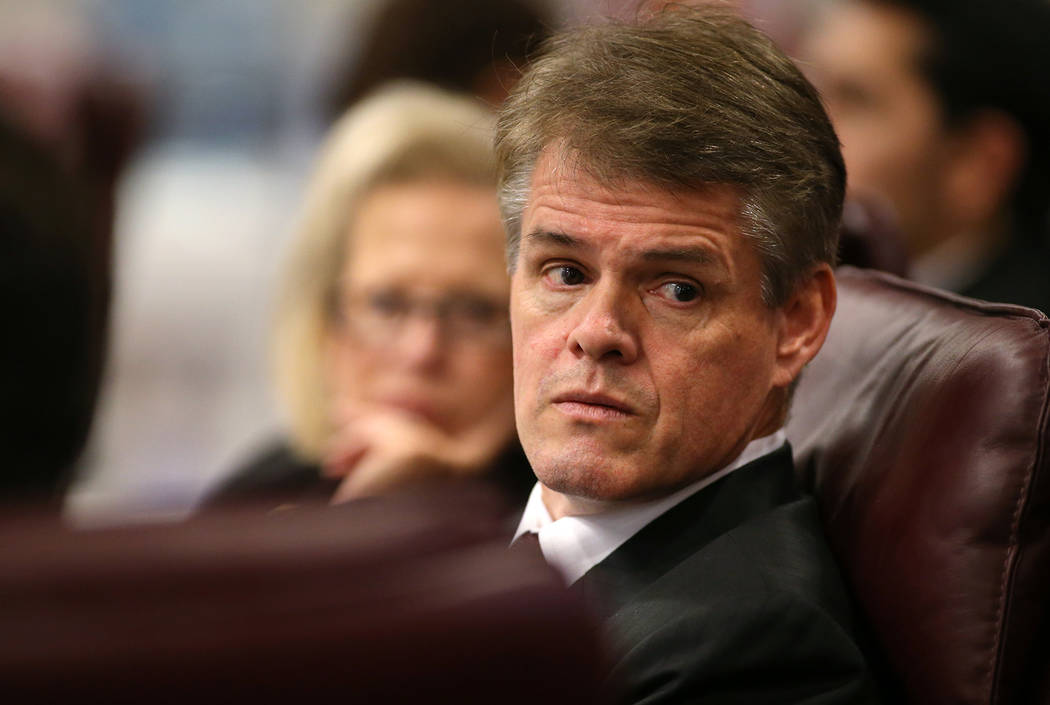Nevada legislators question Pledge of Allegiance removal from K-12 rules

A new set of education regulations approved Thursday has Republicans worried that it could mean things like the Pledge of Allegiance might not be taught to K-12 students in Nevada.
Republican lawmakers on the Legislative Commission said the removal of certain social studies standards — including one that requires students to “Recognize the Pledge of Allegiance” — might give teachers too much wiggle room and lack of accountability.
Assemblyman Chris Edwards, R-Las Vegas, said that broader standards and regulations are not the way go, given Nevada’s persistently low standings on national education rankings.
“I just don’t trust the school system right now to give them flexibility,” Edwards said.
The Legislative Commission, which handles regulatory changes between regular legislative sessions, voted 7-5 to approve the regulations, with all five Republicans on the committee voting against it. The six Democrats and lone independent, Sen. Patricia Farley, voted for the regulations.
Steve Canavero, the state’s superintendent for public instruction, said the change mirrors a trend in education in moving away from specified language to standards based more on “broad, conceptual critical thinking.”
Some things that were removed from the regulations are covered in other parts of the standards. In the case of the Pledge of Allegiance, state law requires that all students start the day with it.
Teachers will still be expected cover major events and key dates in American and state history even though they aren’t specified in the new regulations, said Sarah Brown with the Northwest Regional Professional Development Program.
“While on the surface it appears there are major deletions of content, I would argue the opposite, and really it is broadening the scope,” Brown said.
Assemblywoman Maggie Carlton, D-Las Vegas, disagreed, saying that Nevada’s historically poor education is why things need to be shaken up and that the state shouldn’t be specifying exactly how educators teach the curriculum.
“I don’t think we should be micromanaging every single teacher in every classroom in this state,” she said.
Mines and solar panels
Lawmakers also approved a regulation change that will allow unused mines to be converted into solar energy farms.
The commission voted to add the “renewable energy development and storage” to the list of acceptable post-production for mines that are no longer in use. The regulation was approved by the commission in a bulk-vote on numerous non-contentious regulations with no discussion.
In discussing the regulation in June during at the State Environment Commission, Joel Sawyer, chief of the state’s Bureau of Mining Regulation and Reclamation, called the change “a no-brainer,” noting that the large, flat swaths of earth that shuttered mining operations often leave behind set up perfectly for solar energy generation.
Contact Capital Bureau Chief Colton Lochhead at clochhead@reviewjournal.com. Follow @ColtonLochhead on Twitter.













